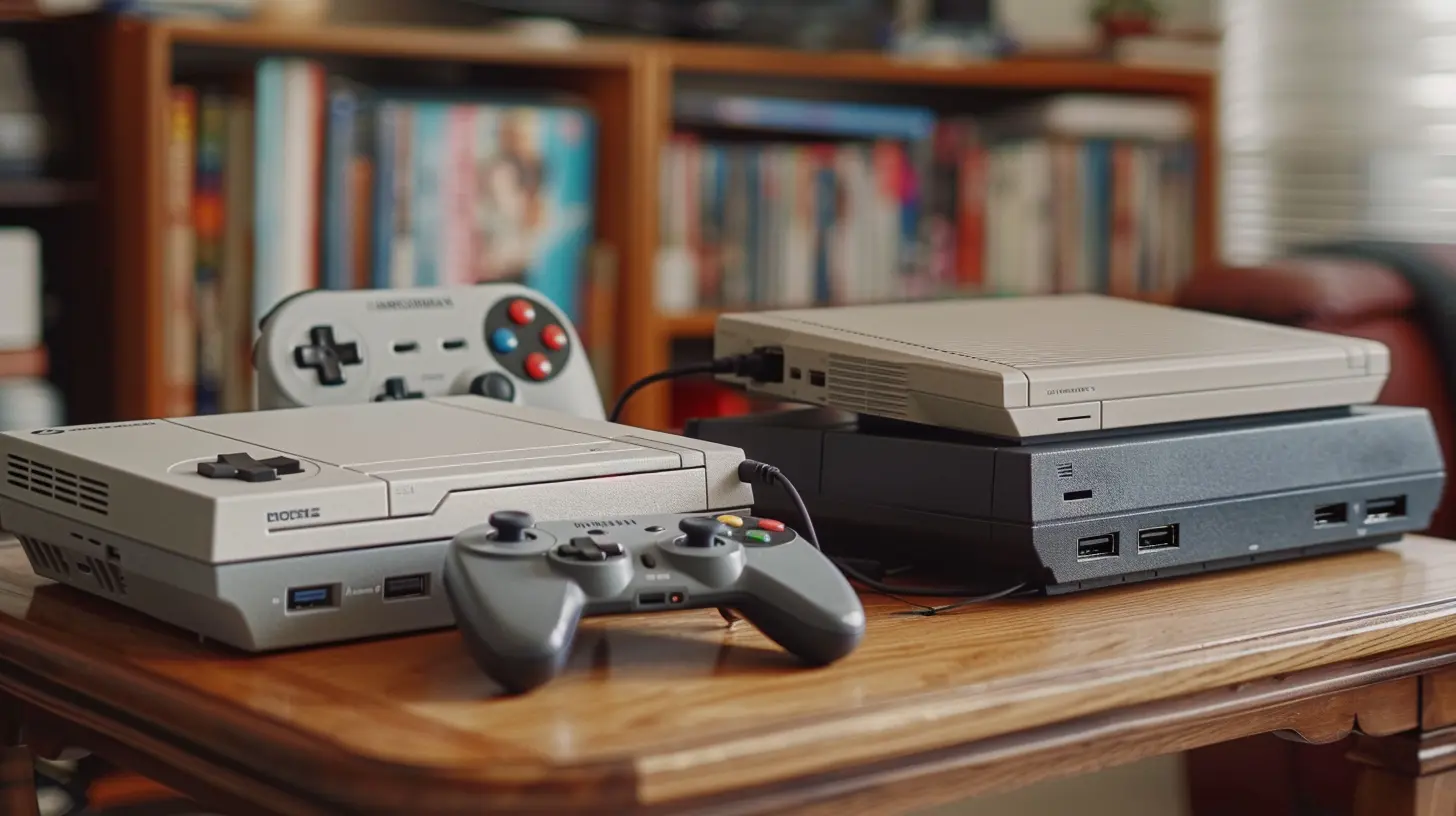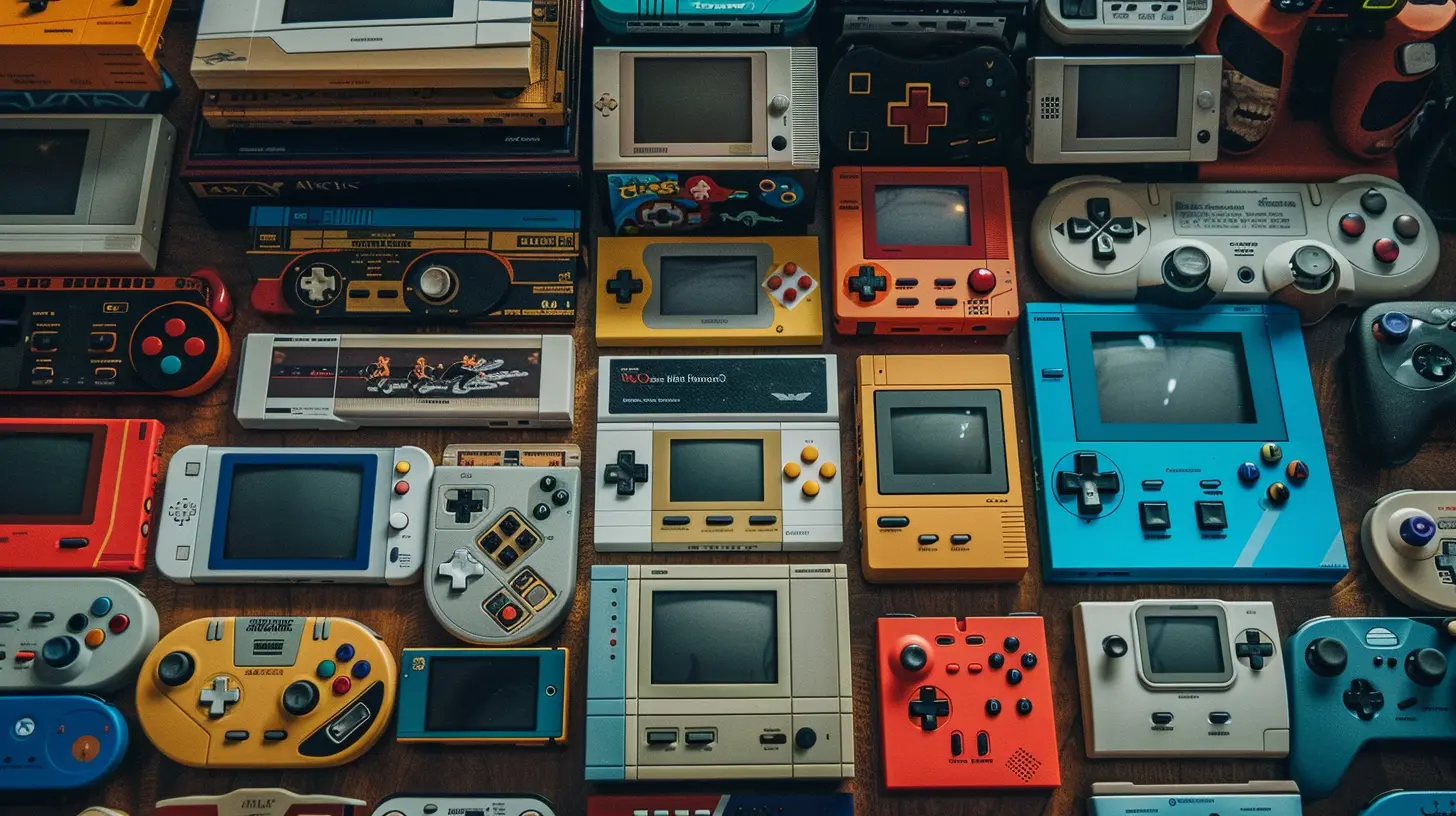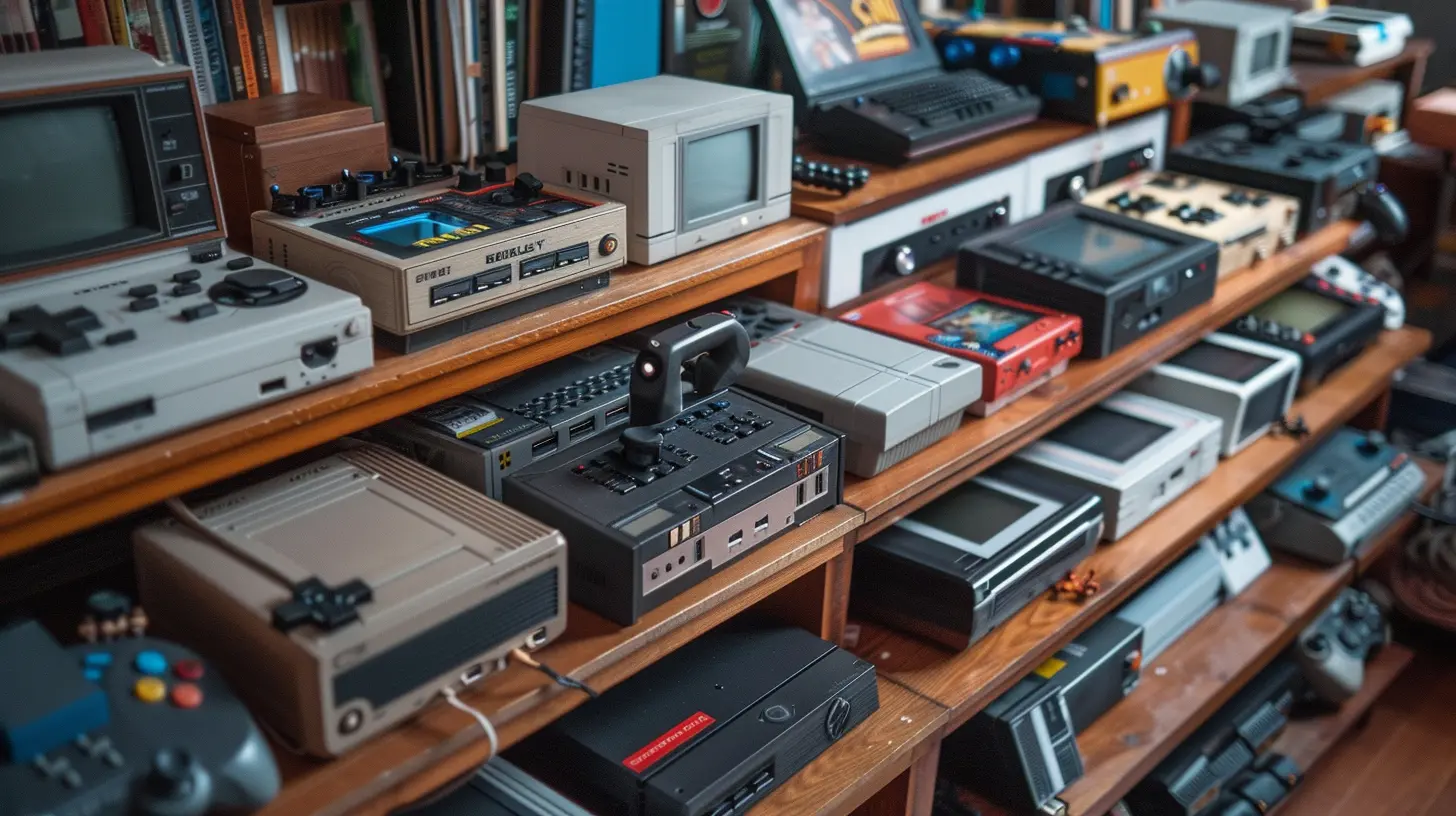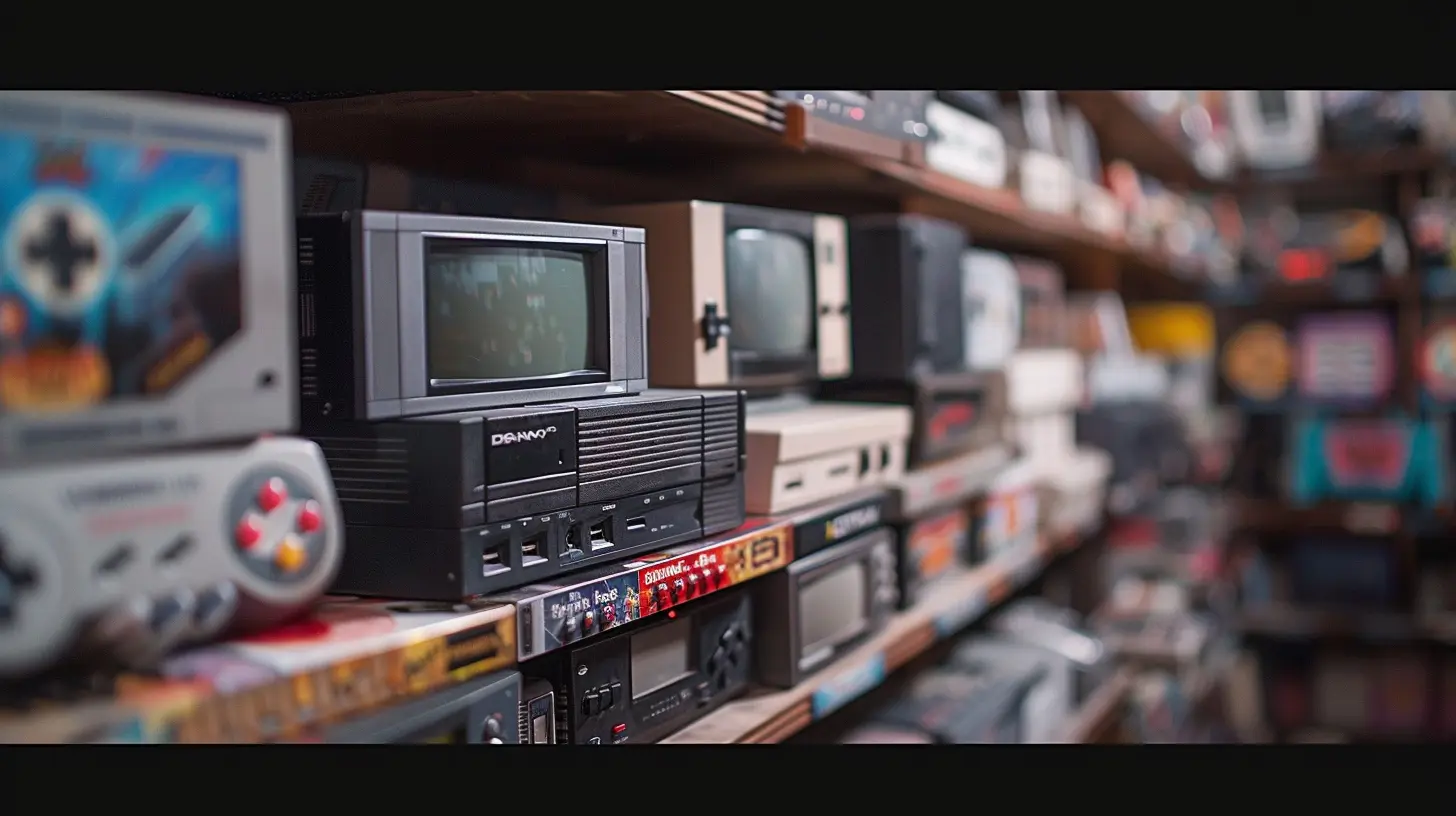Exploring Console War Rivalries Throughout Gaming History
15 July 2025
If you've spent any decent amount of time in the gaming world, chances are you've heard the phrase "console war" tossed around like a hot grenade in a multiplayer skirmish. It's a term that's been echoing through the halls of gaming history for decades now, sparking debates, shaping loyalties, and fueling innovation. But what exactly is a console war? And how did we go from blocky pixels to full-blown console rivalries with fanbases that act more intense than sports fans on game day?
Grab your controller, charge those nostalgia batteries, and let’s take a heartfelt journey through time as we dive deep into the epic console war rivalries that have defined generations of gamers.
What is a Console War, Anyway?
Okay, so before we dive headfirst into the trenches, let's get the basics down.A “console war” is not an actual conflict (no tanks or explosions here, unless we're talking about Call of Duty). It’s a term used to describe the ongoing competition between major video game console manufacturers—think Nintendo, Sony, Microsoft, and back in the day, Sega and Atari. These companies have gone toe-to-toe to win our hard-earned cash, our loyalty, and ultimately, a permanent spot in our living rooms.
And let’s not forget the real MVPs in this battle: us, the gamers. We’ve fueled the fire with every purchase, tweet, and late-night gaming session.
So, how did it all begin?
The First Skirmish: Atari vs. Intellivision (Late 1970s–Early 1980s)
Let’s rewind to the late 70s. Bell bottoms were in, arcades were booming, and at-home gaming was just getting started. Atari’s 2600 pretty much owned the landscape. It was like the undisputed king of the gaming castle.Then along came Mattel’s Intellivision in 1980. They weren’t just bringing better graphics—they had the nerve to release ads outright trashing Atari. Talk about guts.
Were the games better? That depended on who you asked. But one thing’s for sure: this was the first real taste the world had of a console war. It set the tone, and the industry never looked back.
16-Bit Brawl: Sega Genesis vs. Super Nintendo (Late 1980s–Mid 1990s)
Ah, the 16-bit era. If you weren’t fighting over Sonic vs. Mario back then, were you even alive?Sega entered the ring hard with the Genesis in 1989, bringing attitude and speed. Their marketing slogan? “Genesis does what Nintendon’t.” Savage.
Nintendo, refusing to be dethroned, clapped back with the Super Nintendo (SNES) in 1991, serving up unforgettable classics like Super Mario World, The Legend of Zelda: A Link to the Past, and—let’s be honest—a boatload of our childhood memories.
This era gave birth to one of the most iconic rivalries in gaming history. Playground debates turned heated. Households were divided. And yet, gaming as a whole leveled up thanks to this competition.
It wasn’t just about hardware power—it was a battle of identity. Sega was cool and edgy; Nintendo was family-friendly and innovative. Two totally different flavors, both delicious in their own way.
The 3D Showdown: PlayStation vs. Nintendo 64 (Mid 1990s)
Here’s where things got real interesting.When Sony entered the console scene with the PlayStation in 1994, no one saw them coming. They weren’t a gaming company—they were known for TVs and stereos. Yet, somehow, they landed like a mic drop.
Nintendo fired back in 1996 with the Nintendo 64. Now, don’t get me wrong—N64 gave us Mario 64, Ocarina of Time, and GoldenEye 007, all absolute bangers. But Sony had something different. They weren’t just offering games, they were building a cool brand. CDs instead of cartridges meant more storage, better sound, and full-motion video.
And then there were the third-party developers. Final Fantasy VII jumping ship from Nintendo to Sony was like LeBron leaving Cleveland for Miami. Huge deal. Sony ran away with the lead, and the PlayStation became a household name.
The New Challenger: Xbox vs. PlayStation 2 (Early 2000s)
Enter Microsoft.In 2001, Microsoft threw their green-colored hat into the ring with the original Xbox. People were skeptical—why would a software company try to make a console? But then Halo dropped, and suddenly, everyone was paying attention.
Still, the PlayStation 2 was a juggernaut. It wasn’t just a console—it was a DVD player, a media center, and a machine that sold over 155 million units. To this day, it’s the best-selling console ever. Talk about domination.
But Microsoft wasn’t giving up. The first console war of the 21st century had begun, and the next generation would decide the real victors.
The Golden Triangle: Xbox 360 vs. PlayStation 3 vs. Nintendo Wii (Mid 2000s)
This era was wild.Each console took a completely different approach, and that’s what made it amazing.
- Xbox 360 (2005): Came out early, nailed online multiplayer with Xbox Live, and had killer exclusives like Gears of War and Halo 3.
- PlayStation 3 (2006): Launched a year later with a steep price tag and some early missteps, but eventually rallied back with hits like Uncharted, The Last of Us, and a strong first-party lineup.
- Nintendo Wii (2006): Came out of left field with motion controls and absolutely crushed in sales. It wasn’t just a gaming console—it became a family experience in every living room.
This three-way dance showed how diverse gaming tastes had become. Hardcore players leaned toward Xbox and PlayStation, while casual gamers and families loved the Wii. There was something for everyone, and that’s what made this era truly special.
Modern Warfare: PS4 vs. Xbox One vs. Nintendo Switch (2010s)
The 2010s were all about refining the experience.Sony’s PlayStation 4 hit the ground running in 2013, learning from the PS3’s mistakes and delivering games we didn’t know we needed—Bloodborne, God of War, Horizon Zero Dawn, and more.
Microsoft stumbled a bit at launch with their emphasis on TV and media integration rather than games. But they made a strong comeback with services like Xbox Game Pass, which changed the way we think about owning games.
And Nintendo? Oh boy. After the Wii U’s flop, they bounced back with the hybrid magic of the Nintendo Switch. It’s part handheld, part console, and 100% genius. The Switch brought us back to basics—gameplay first, everything else second.
This generation wasn’t just about who had better graphics. It was about community, services, innovation, and exclusive titles. It felt less like a war and more like a healthy competition where everyone could find their niche.
The Current Frontlines: PS5 vs. Xbox Series X|S vs. Switch OLED (2020–Present)
Now we’re in the thick of the current generation, and things are spicy.Sony continues to deliver jaw-dropping exclusives, stunning visuals, and that crisp DualSense controller that just feels right. The PS5 is all about experience—immersive sound, haptic feedback, and seamless loading.
Meanwhile, Microsoft is going all-in on value and accessibility. Xbox Series X|S are powerful and affordable, and Game Pass remains the best deal in gaming. And let’s not forget xCloud—the idea of playing console games on your phone? Wild.
Nintendo’s still doing their own thing with the Switch and its OLED model. Sure, it’s not the most powerful hardware, but when you’re swinging through Hyrule or racing in Mario Kart with friends, none of that matters.
Each console has its own strengths, and today’s rivalry feels more collaborative than ever. Crossplay is real, indie games thrive, and the lines between platforms are starting to blur. It's like we’ve all grown up and realized there’s enough room on the couch for everyone.
How Console Wars Shaped Gaming
Let’s be honest—the drama, the trash talk, the tech battles—it all made gaming more exciting. Console wars pushed companies to innovate, gamers to demand better, and the industry to evolve faster than we ever expected.Without Sega pushing Nintendo, would we have gotten the SNES?
If Sony hadn’t challenged Nintendo, would we have seen 3D gaming evolve the way it did?
Would Game Pass exist without the high-stakes battle with PlayStation exclusives?
Every rivalry forced someone to level up.
So… Who Won?
Honestly? We all did.Sure, companies have had their wins and losses, but the real victory is how much better gaming has become because of these rivalries. We’ve gone from pixelated plumbers to sprawling open worlds, from couch co-op to global multiplayer.
Whether you’re Team Mario, Team Master Chief, or Team Kratos—or maybe you just like a bit of everything—the console war has gifted us a legacy of innovation, magic, and pure, unfiltered joy.
So here’s to the battles fought, the games played, and the friendships forged (and maybe slightly ruined) along the way.
Game on, folks.
all images in this post were generated using AI tools
Category:
Gaming ConsolesAuthor:

Lana Johnson
Discussion
rate this article
2 comments
Beatrice McKale
Exciting journey through gaming history!
December 30, 2025 at 4:48 AM

Lana Johnson
Thank you! I'm glad you enjoyed the journey through such a fascinating aspect of gaming history!
Ashira McEachern
Console wars: where friendships are tested, memes are born, and epic battles are fought—may the best controller win!
July 19, 2025 at 2:34 AM

Lana Johnson
Absolutely! The console wars have sparked intense rivalry and creativity, shaping both gaming culture and friendships for decades. Let the best console reign supreme!


